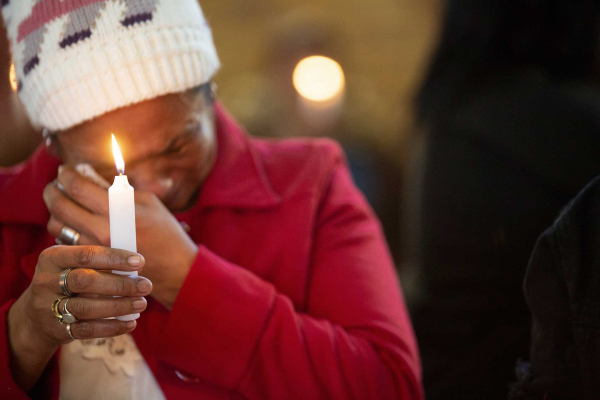- About
- Topics
- Picks
- Audio
- Story
- In-Depth
- Opinion
- News
- Donate
- Signup for our newsletterOur Editors' Best Picks.Send
Read, Debate: Engage.
In 2021, the number of murders dropped by 6.5 percent in Brazil, as denoted by the last Brazilian Public Security Yearbook. Notwithstanding, the country is still a violent one, especially for a certain cohort: half of the more than 47,500 victims were aged between 12 and 29 years-old, almost 78 percent were black and more than 91 percent were male. Another factor that calls attention is that nearly three out of four crimes were committed with firearms.
In Brazil, the last three and a half years have been marked by pro-gun policies, in line with the beliefs of President Jair Bolsonaro, a strong supporter of the right to own weapons. Bolsonaro instated deregulations over his term that make it easier for collectors, hunters and sport shooters, for example, to access guns and ammunition - even after warnings not to do so, as Reuters reveals. The result of a continued policy was recently investigated by a local mainstream newspaper, O Estado de São Paulo.
The journalist Marcelo Godoy affirms that criminals such as bank robbers and drug traffickers pay up to 65 percent less for the arsenal thanks to the possibility of purchasing rifles, carbines and pistols in the legal market, using the new rules' prerogatives. The future can be no better if a bench of candidacies of shooting instructors, club owners, police officers and lawyers' coalition, launched to support pro-guns laws in the Congress House, succeed in the upcoming 2022 elections.
A weak or even lack of regulation of fire weapons is jeopardising other nations in Latin America, as well. The Progressive Magazine denounced that the US' "obsession with guns and its unwillingness to implement reasonable restrictions to accessing them" has been allowing the purchase and exportation of weapons through the Mexican border to Central America, which "directly contributed to increased violence and crime." Still, according to the journalist Jeff Abbott, about 80 percent of guns used by organised crime in Guatemala come to the illegal market from the US, a problem also shared by other countries in Latin America.
Aside from the criminals' access to guns, which is clearly something the population opposes, the civil society’s right to access them can be more polemic. Would arming the population be the right way to tackle crime and violent deaths?
Perhaps the investigation over international data such as from the Small Arms Survey may not lead to determinant results alone. Even though some nations with low homicide rates have, indeed, a high number of firearms in possession of civilians, data may often hide other aspects that determine the use of guns in a certain place. Latin America and the Caribbean, deeply wounded by social issues, account for 10 percent of the global population, but for 35 percent of worldwide homicides, according to a survey by Igarape Institute.
The Master in Public Policy working on the development of policies against violence, Martín De Simone, says that this correlation is a "short-sighted" idea that "profoundly ignores the dynamics of its circulation," meaning that frequently the weapons in hands of citizens may "end up in the hands of criminals with more firepower." Moreover, De Simone uses Harvard studies to affirm that more weapons often lead to more deaths - both homicides or suicides. "A security policy must aim to reduce violence and gun control policies must be aligned with that objective. It is time to take this issue seriously," he assesses.
Photo by Maria Lysenko
